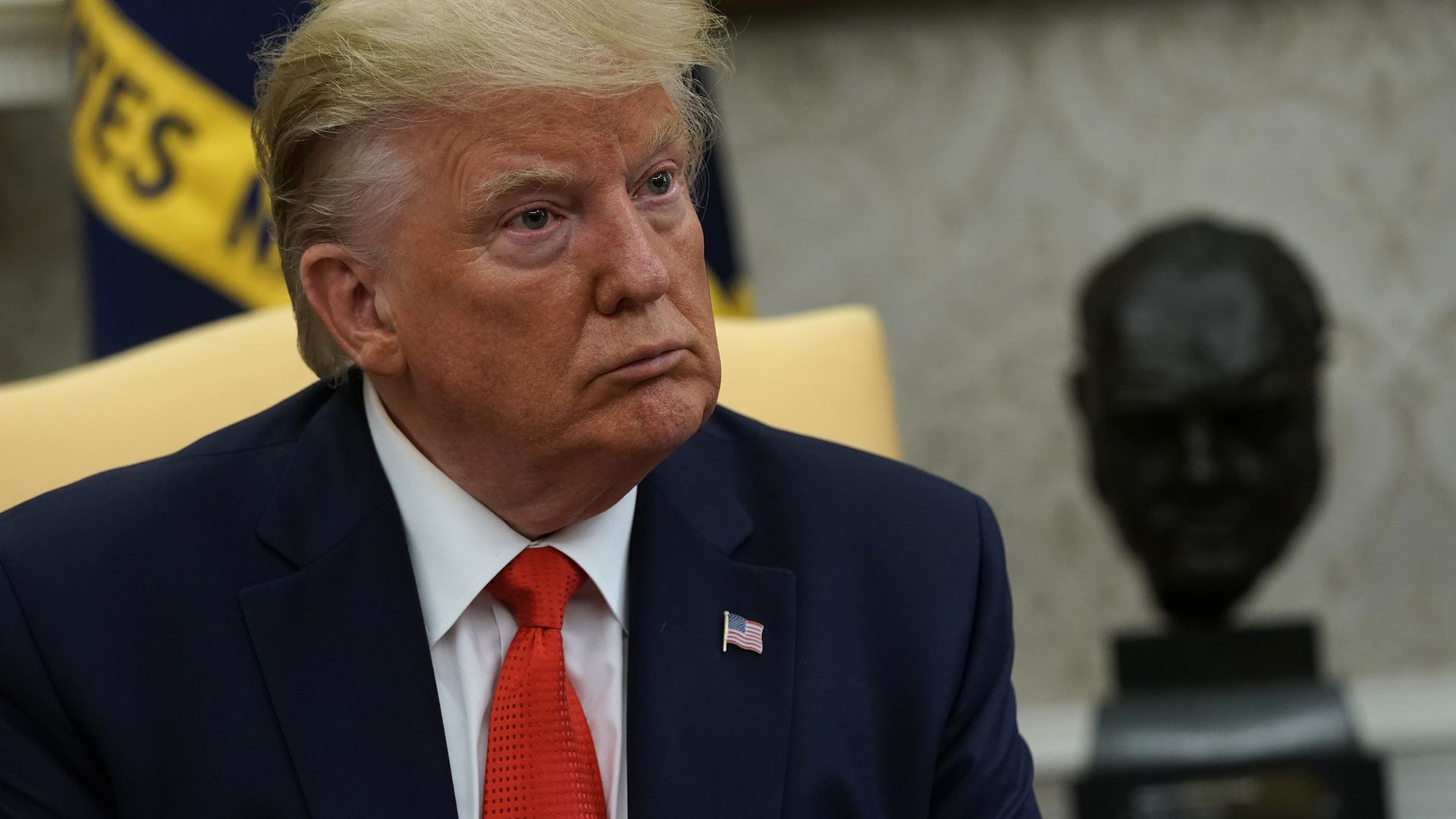Trump and Democrats may find more foreign policy overlap post-Bolton
Add Axios as your preferred source to
see more of our stories on Google.

President Trump in the Oval Office. Photo: Alex Wong/Getty Images
John Bolton’s departure from the White House has deepened uncertainty in Washington about how the White House plans to handle a myriad of pressing national security issues.
The big picture: From the war in Afghanistan to North Korea’s nuclear program to pressure on Iran, the partnership of President Trump and his most recent national security adviser, while uneasy, was relatively predictable. On several of those issues, Trump may now angle for policies more in line with Democrats' policy positions.
The impact: For the past 18 months Democrats have been able to criticize the president’s execution of diplomacy while not criticizing diplomacy. Bolton favored bombing Iran, called for shredding nuclear agreements with Russia and opposed talks with the Taliban.
- With Bolton out of the way, the familiar hawkish bogeyman is no longer available as a proxy target for criticism of President Trump’s foreign policy.
Between the lines: Iran is the clearest case in which Trump appears to be pivoting to the Democratic position, mulling a rollback of his "maximum pressure" sanctions campaign in exchange for face time with the Iranians. Absent pressure from Bolton, this path could lead to renewed diplomacy and, paradoxically, an agreement like the nuclear deal Democrats strongly supported.
- On North Korea, Trump appears to be comfortable with the new status quo of regular missile testing. While Bolton's departure makes a "fire and fury" escalation less likely, Trump's personal overtures to Kim Jong-un may not secure the firm diplomatic deal Democrats would want — one that includes verifiable denuclearization, limits on missile technology, and non-aggression commitments.
- On Afghanistan, many Democrats accept the war may not have a military solution, but Trump's pursuit of a diplomatic exit still raises difficult questions. With the recent Camp David talks called off, the odds of a rushed withdrawal have increased, opening Trump up to criticism from Democrats who support leaving but prefer a negotiated, staged process.
What to watch: As President Trump increasingly calls for outcomes that require diplomacy, Democrats will have to decide whether to support him, particularly if he makes headway in achieving foreign policy goals they have long championed.
Joel Rubin is the president of the Washington Strategy Group and a former deputy assistant secretary of state.
